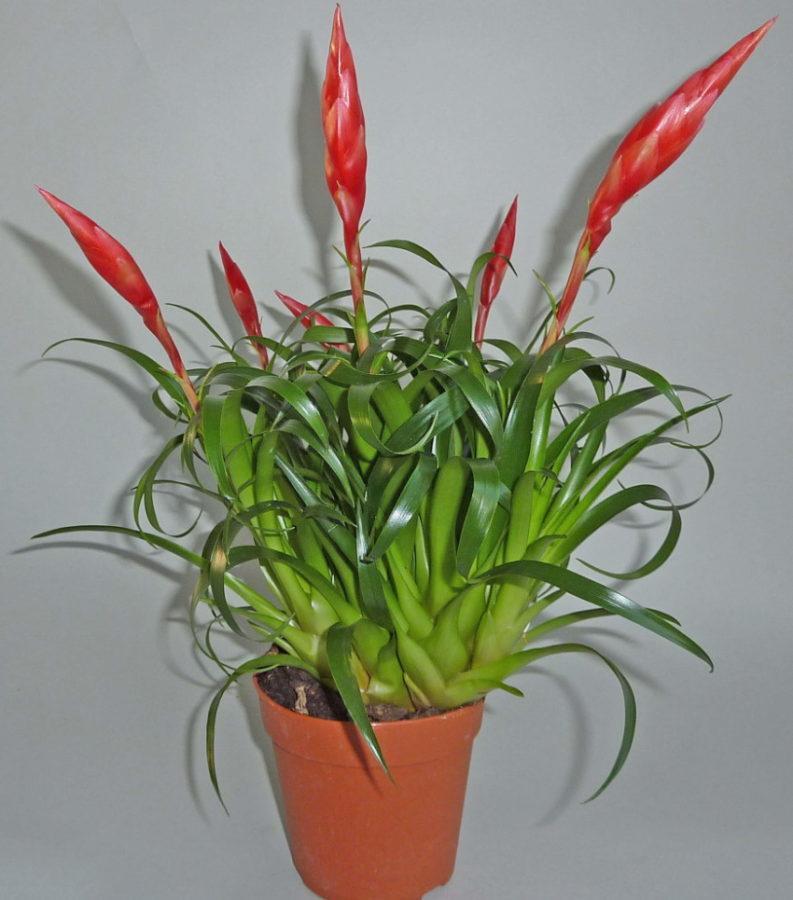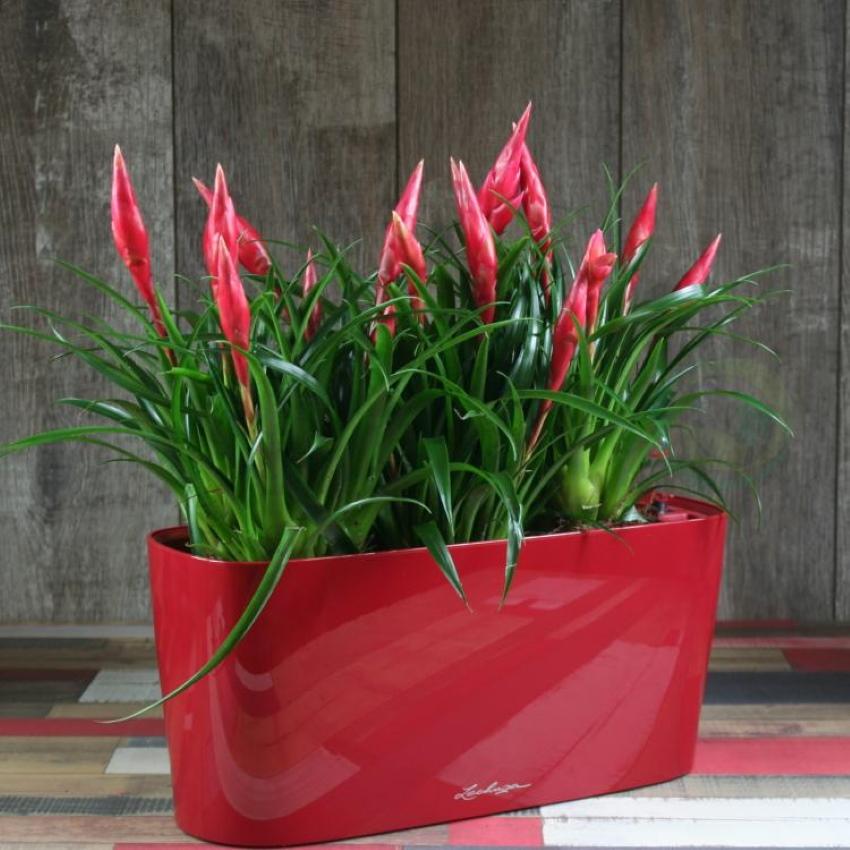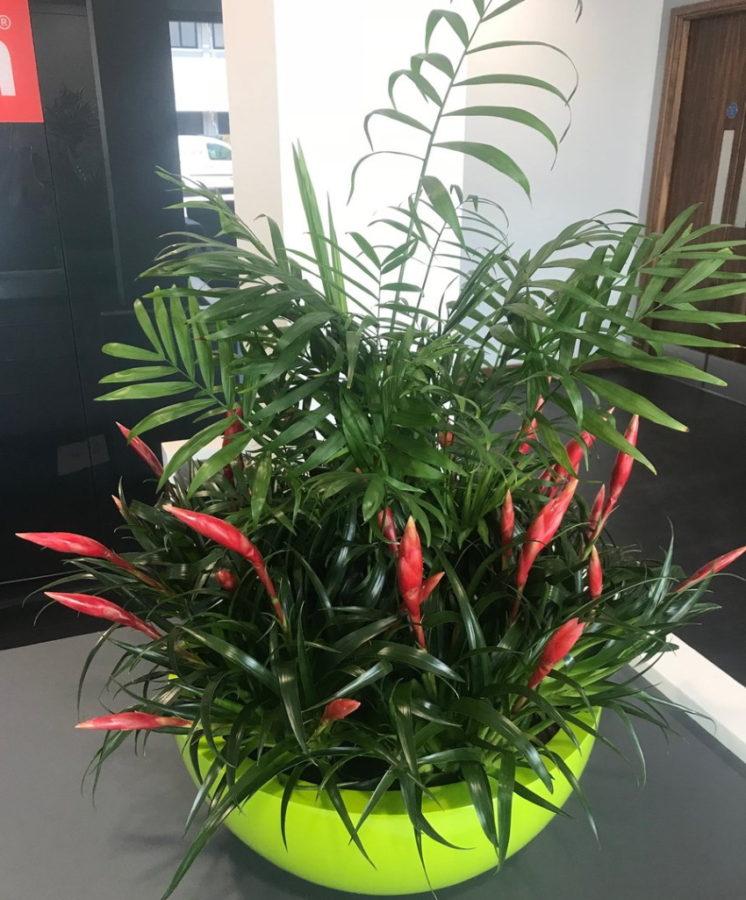Vriezia Astrid - delicate spikelets will decorate your windows
 Amazing flowers, these plants are from the bromeliad family ... It seems that there are roots, but completely different parts are responsible for nutrition. One of the most popular varieties, Astrid Vriezia, will delight you with long flowering and compact size. She is as unpretentious as the rest of the representatives. Considering some of the nuances, due primarily to the structure of the flower, it is not difficult to grow it.
Amazing flowers, these plants are from the bromeliad family ... It seems that there are roots, but completely different parts are responsible for nutrition. One of the most popular varieties, Astrid Vriezia, will delight you with long flowering and compact size. She is as unpretentious as the rest of the representatives. Considering some of the nuances, due primarily to the structure of the flower, it is not difficult to grow it.
Vriezia Astrid - characteristic features of the species

But what the variety can especially please is the long flowering. Moreover, the flower arrow is often twice the height of the rosette. Vriezia blooms for almost 4 months - longer than all other species. This usually happens closer to summer. In addition, one bush is capable of producing at least 5 peduncles. Is a single spikelet comparable to it, even if it is brightly colored? By the way, about the color: the spike-shaped inflorescence is raspberry-red, sometimes there is a yellow or orange version.
Subtleties of Vrieseia care
 A small bush loves a lot of light and a couple of hours of direct sunlight a day will do him good. Put it on the west window, you can also on the south, but do not forget to shade for the summer so that there are no burns. However, do not forget that all vriezii require high humidity, at least 60%. With regard to temperature, the flower prefers a comfortable 23 ° C temperature all year round.
A small bush loves a lot of light and a couple of hours of direct sunlight a day will do him good. Put it on the west window, you can also on the south, but do not forget to shade for the summer so that there are no burns. However, do not forget that all vriezii require high humidity, at least 60%. With regard to temperature, the flower prefers a comfortable 23 ° C temperature all year round.
No matter how much you want to buy a plant in the cold season, be patient until spring. Vriezia may not survive the road, especially if it's freezing outside. Or try to carefully "wrap up" the bush.
Having created the proper conditions for her, it is not at all difficult to take care of her. Most importantly, do not forget about the peculiarities of watering this epiphyte. The flower needs a little attention:
- In the summer, every three days, water the beauty by pouring water into the outlet. Moisten the soil also slightly every other day.
- In winter, reduce your watering frequency to 2 times a week and only use warm water.
- Spray the leaves frequently throughout the year.
- During the flowering period, remove the watering from the outlet and moisten only the substrate so that the bush does not rot.
- Before the plant is about to bloom, help it by feeding it with orchid fertilizer. But just not in a pot, but spray the leaves with a working solution and pour it into an outlet.
Remarkably, Vriezia does not need frequent transplants, moreover, it does not tolerate it well. Large pots are even harmful to her due to poorly developed roots. It is worth replanting the bush only for breeding purposes. At the end of flowering, Vriezia forms babies. When the babies grow up and grow their roots, separate them and plant them.This is how culture is most often propagated. Of course, if you are a fanatic florist and like to participate in the "life path" of plants from seed to flowering, you can sow seeds. Just get ready to wait, and for a very long time. Sometimes the first peduncle in Vriezia grown from seeds appears only after 10 years.